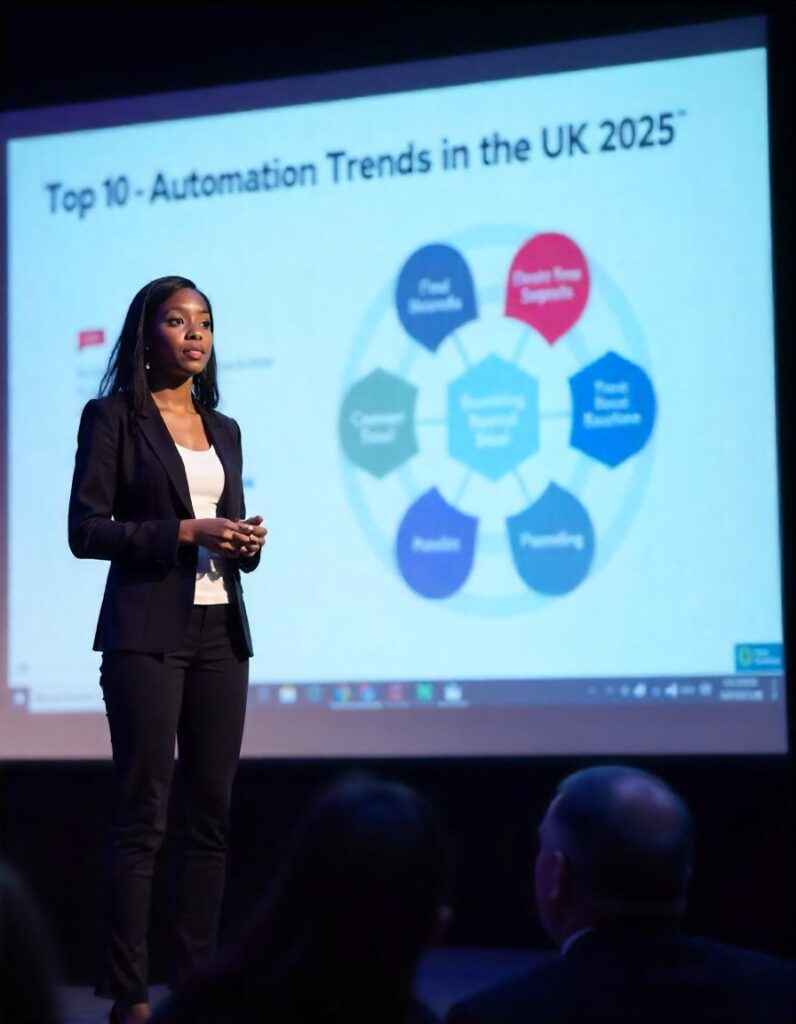AI automation has revolutionized the way companies operate, providing unparalleled efficiency, cost savings and scaling. But, even though the benefits are evident, the process of implementing AI automation comes with its challenges. From data issues to integration issues getting towards seamless AI adoption isn’t without bumps.
This guide will help you understand the main issues businesses face when it comes to using AI automation and gives concrete strategies to address these obstacles. If you tackle these obstacles in the face, you can guarantee an easier, more efficient AI automation process.
Challenge 1: Data Quality and Availability
Why It Matters:
AI excels when it is supported by data. If it is used to train a machine learning model or produce insight, data of high quality is the basis of any effective AI system. A poor quality of data or insufficient access to data can lead to incorrect predictions and poor results.
Tips to Enhance Data Quality and Availability:
- Cleaning of Data: Ensure you regularly cleanse your data to eliminate any duplicates, errors, or inconsistencies. Clean data improves AI performance significantly.
- Centralised Storage of Data: Consider investing in a centralised data platform which allows all the data from your organization to be stored and easily accessed.
- Guidelines for Governance of Data: Develop solid governance guidelines to ensure the accuracy of data, as well as security, and to ensure conformity.
- Synthetic Data: If real-world data is in short supply, make use of synthetic data to create relevant datasets to use in AI models.
Insight Based on Gartner companies that prioritize quality datasets can see a 50% increase in AI results.
Problem 2: Integration with Existing Systems
Why It Matters:
AI solutions should work with existing systems that are in use. However, integrating the latest AI tools into outdated infrastructure may be a daunting task and fraught with compatibility issues.
Strategies for Seamless Integration:
- Conduct an audit of the System: Review the current systems to find compatibility issues and integration problems.
- Select Flexible AI Platforms: Choose AI platforms that have APIs that facilitate integration with various tools and software.
- Incremental Deployment: Implement AI slowly, beginning by implementing a small-scale pilot project to minimize risks and demonstrate the potential.
- Collaboration with IT Teams Working in conjunction with your IT department, to assure the alignment with AI systems and technology in use.
Insight: McKinsey says that hyper automation which includes using the latest AI as well as RPA systems, could cut operational costs by up to 30%.
Challenge 3: Skill Gaps and Training
Why It Matters:
AI systems require specific knowledge to ensure their implementation and management. Many organizations face an insufficient number of experts who are able to manage AI projects.
How to Address the Skill Gap:
- Make sure you invest in employee training, offer in-house training or provide online courses in AI or AI powered RPA capabilities.
- Utilize External Expertise: Work with AI experts and consultants for filling in short-term knowledge gaps during the implementation phases.
- Create an AI-centric culture: Inspire teams across functional lines to comprehend the ways in which AI can help achieve business objectives.
- Platforms for Upskilling: Utilise resources like Coursera, Udemy, or specialised AI certification programs to facilitate group training.
Insight: A trained and skilled team can maximize AI’s potential, and companies that prioritize training their staff to improve their skills faster ROI from AI investments.
Challenge 4: Ethical Concerns and Bias
Why It Matters:
AI systems are only as impartial as the information they’re trained on. Moral dilemmas like the production of discriminatory outputs, the lack of transparency, as well as social harms that are not intended can greatly affect trust and reputation.
Guidelines for Responsible AI Development:
- Prioritize AI Governance: Create guidelines to assess and reduce the risks of biases and untrue decisions.
- Multiply Data Sources Make use of different datasets to reduce the risk of bias when creating models for training.
- Be transparent: Always state the manner in which AI is employed, ensuring that all stakeholders are aware of its role in deciding.
- Set Accountability: Delegate the responsibility of monitoring teams to oversee AI ethics and ensuring compliance throughout the operation.
Insight Information: A Deloitte study reveals the fact that 70 percent of firms are concerned about AI ethics. Accenture’s research suggests that companies who adopt ethical AI methods have 2.5 percent more likely to be regarded as trustworthy by their customers.
Challenge 5: Security and Privacy Risks
Why It Matters:
The massive amount of data AI processes is a major victim of cyberattacks. Data breaches and the exploitation of weak algorithms, poorly secured AI systems can expose companies to serious risk.
Best Practices for AI Security:
- Conduct regular audits: Frequently examine AI systems to identify security holes.
- Secure All Data: Make sure every data that is used in AI platforms is encrypted in order to stop unauthorised access.
- AI Monitoring Systems: Deploy AI-powered cybersecurity tools that detect and reduce security threats in real-time.
- Accept Compliance Standards: Adhere to industry standards for best practices, such as GDPR, as well as other applicable regulations regarding data privacy.
Information: Cybersecurity Ventures predicts that AI-powered security tools will rise to the size of a $46.3 billion business by the end of 2027 which underscores the importance of protecting enterprise AI systems.
Mapping the Path to Success
The obstacles to setting up AI automation are huge yet they’re not insurmountable. By addressing issues related to data quality and integrating systems with care and teams, enhancing their skills in ethics, prioritizing ethical standards, and implementing better security procedures You’ll be able to use AI to boost your business’s performance.
Collaboration with Softrobo to provide Seamless AI Solutions
The complexities of AI automation does not have to be a daunting task for a single person. Softrobo is a company that is expert in making it easier to manage AI implementation for companies that require efficient, reliable, ethical, and trustworthy solutions. If it’s AI-powered RPA hyper automation, as well as responsible AI development We’ve got you covered.
Do you want to overcome your AI problems? Make contact with Softrobo today to learn what we can do to tailor solutions to meet your needs!




